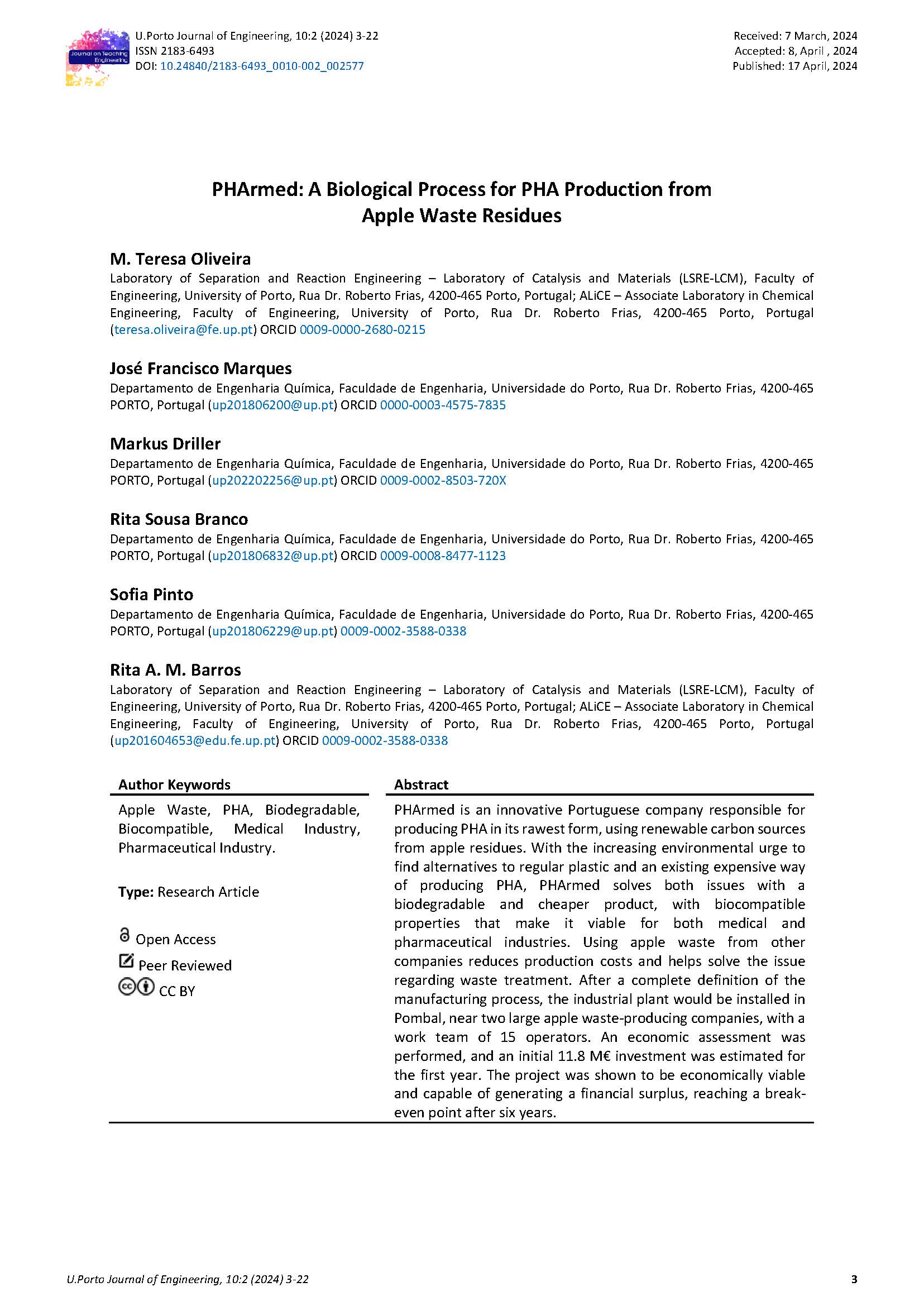PHArmed: A Biological Process for PHA Production from Apple Waste Residues
Main Article Content
Abstract
PHArmed is an innovative Portuguese company responsible for producing PHA in its rawest form, using renewable carbon sources from apple residues. With the increasing environmental urge to find alternatives to regular plastic and an existing expensive way of producing PHA, PHArmed solves both issues with a biodegradable and cheaper product, with biocompatible properties that make it viable for both medical and pharmaceutical industries. Using apple waste from other companies reduces production costs and helps solve the issue regarding waste treatment. After a complete definition of the manufacturing process, the industrial plant would be installed in Pombal, near two large apple waste-producing companies, with a work team of 15 operators. An economic assessment was performed, and an initial 11.8 M€ investment was estimated for the first year. The project was shown to be economically viable and capable of generating a financial surplus, reaching a break-even point after six years.
Downloads
Article Details

This work is licensed under a Creative Commons Attribution 4.0 International License.
Authors who publish with this journal agree to the following terms:
- Authors retain copyright and grant the journal right of first publication with the work simultaneously licensed under a Creative Commons Attribution License that allows others to share the work with an acknowledgement of the work's authorship and initial publication in this journal.
- Authors grant the journal the rights to provide the article in all forms and media so the article can be used on the latest technology even after publication and ensure its long-term preservation.
- Authors are able to enter into separate, additional contractual arrangements for the non-exclusive distribution of the journal's published version of the work (e.g., post it to an institutional repository or publish it in a book), with an acknowledgement of its initial publication in this journal.
- Authors are permitted and encouraged to post their work online (e.g., in institutional repositories or on their website) prior to and during the submission process, as it can lead to productive exchanges, as well as earlier and greater citation of published work (See The Effect of Open Access).

